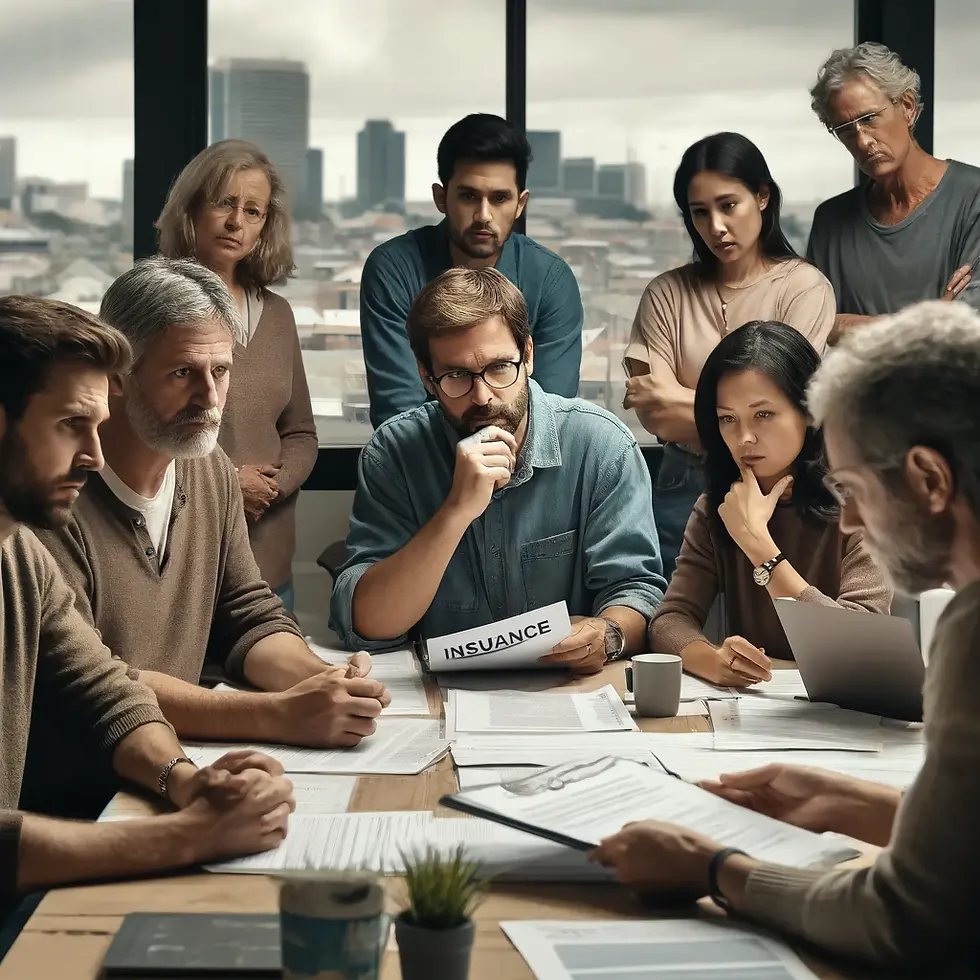Sex Trafficking and NGOs: The Unthinkable Connection
- Sam Wilks

- Jun 1, 2024
- 4 min read

Non-governmental organisations (NGOs) have long been heralded as champions of humanitarian causes, dedicated to aiding the vulnerable and marginalised. Yet, recent revelations have exposed a disturbing paradox: some NGOs, meant to combat exploitation, have been implicated in sex trafficking. This duality is not merely a matter of individual malfeasance but points to systemic flaws within these institutions. By examining these failures from a security perspective, we can understand the root causes and propose robust solutions.
Sex trafficking within the realm of NGOs is a particularly egregious betrayal of trust. These organisations often operate in regions where security and law enforcement are weak and oversight is minimal, creating fertile ground for exploitation. The involvement of NGOs in such activities not only undermines their mission but also perpetuates the very injustices they claim to fight.
The vulnerabilities within NGOs that allow sex trafficking to occur can be traced back to several systemic issues. A lack of rigorous oversight and accountability mechanisms often leaves these organisations unchecked. Bureaucratic inertia and internal politics stifle efforts to address misconduct, while cultural and psychological factors contribute to a climate where abuses are overlooked or excused.
Economic incentives play a significant role in the perpetuation of sex trafficking within NGOs. The influx of donor money, often accompanied by minimal scrutiny, creates opportunities for corruption. Individuals within these organisations exploit their positions for personal gain, using the guise of humanitarian work to mask their illicit activities. It is one of the oldest tales in history, underscoring the timeless wisdom of being far more cautious of those who claim virtue than those with evident vices. The need for vigilance is all the more apparent because the self-declared virtuous are not subject to any restrictions on their conscience.
One of the most high-profile cases involved the international NGO Oxfam. In 2018, reports surfaced that Oxfam staff had engaged in sexual misconduct, including with minors, in Haiti following the 2010 earthquake. Investigations revealed a culture of impunity within the organisation, where senior staff were aware of the abuses but failed to take action. This scandal exposed significant lapses in oversight and a failure to prioritise the safety and well-being of the vulnerable populations Oxfam was meant to serve.
In Australia, the Northern Territory has seen its share of NGO-related controversies. While specific cases of sex trafficking are less documented, the region has experienced issues with NGOs failing to adequately protect vulnerable populations. Reports of misconduct and abuse within organisations tasked with safeguarding Indigenous communities have highlighted the systemic failures that allow such abuses to persist.
Systemic failures in NGOs that enable sex trafficking include a lack of oversight and regulation, cultural and structural barriers, economic pressures and corruption, and psychological and sociocultural dynamics. Lack of oversight allows abuses to go unchecked, while cultural barriers discourage whistleblowing and protect perpetrators. Economic pressures and corruption can arise from donor money influxes, both through bureaucratic and political means, at the cost of the taxpayer and other forms, which can be mitigated through stringent financial controls and regular audits. Psychological and sociocultural dynamics contribute to systemic abuses, necessitating rigorous screening and ongoing psychological support for staff. Addressing these issues is crucial to preventing abuses within NGOs.
Addressing systemic failures in NGOs requires a comprehensive approach involving all stakeholders, including government agencies, NGOs, communities, and individuals. To build trust and prevent abuses, NGOs must create a culture of transparency and accountability through clear reporting mechanisms, regular audits, and public accessibility of findings. Strengthening whistleblower protections can encourage reporting without fear of retaliation. Community engagement and empowerment, particularly for marginalised and vulnerable groups, can enhance protection programs' effectiveness.
Regulatory and legal reforms, such as stringent licencing requirements, minimum standards for protection, and regular inspections, will hold NGOs accountable for their actions. Investing in psychological and educational interventions, such as comprehensive staff training, evidence-based therapeutic programs, and educational curricula, may also help prevent abuse and support victims. These steps are crucial for meaningful reform and ensuring the safety of vulnerable populations.
The involvement of NGOs in sex trafficking represents a profound betrayal of trust and a stark reminder of the systemic vulnerabilities that exist within these organisations. Ultimately, addressing these systemic issues requires a commitment to transparency, accountability, and community engagement. By tackling the underlying economic, cultural, and psychological factors that allow abuse to occur, we create safer environments for vulnerable populations and restore faith in the institutions meant to protect them. The journey towards reform is challenging, but it is a necessary one if we are to honour the trust placed in these organisations and safeguard the well-being of those they serve. It requires dedication, perseverance, and a commitment to accountability and transparency.
From the author.
The opinions and statements are those of Sam Wilks and do not necessarily represent whom Sam Consults or contracts to. Sam Wilks is a skilled and experienced Security Consultant with almost 3 decades of expertise in the fields of Real estate, Security, and the hospitality/gaming industry. His knowledge and practical experience have made him a valuable asset to many organizations looking to enhance their security measures and provide a safe and secure environment for their clients and staff.



Comments